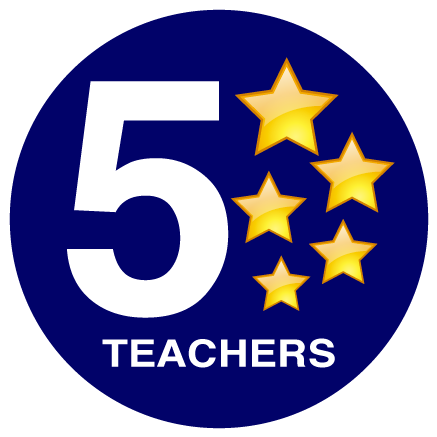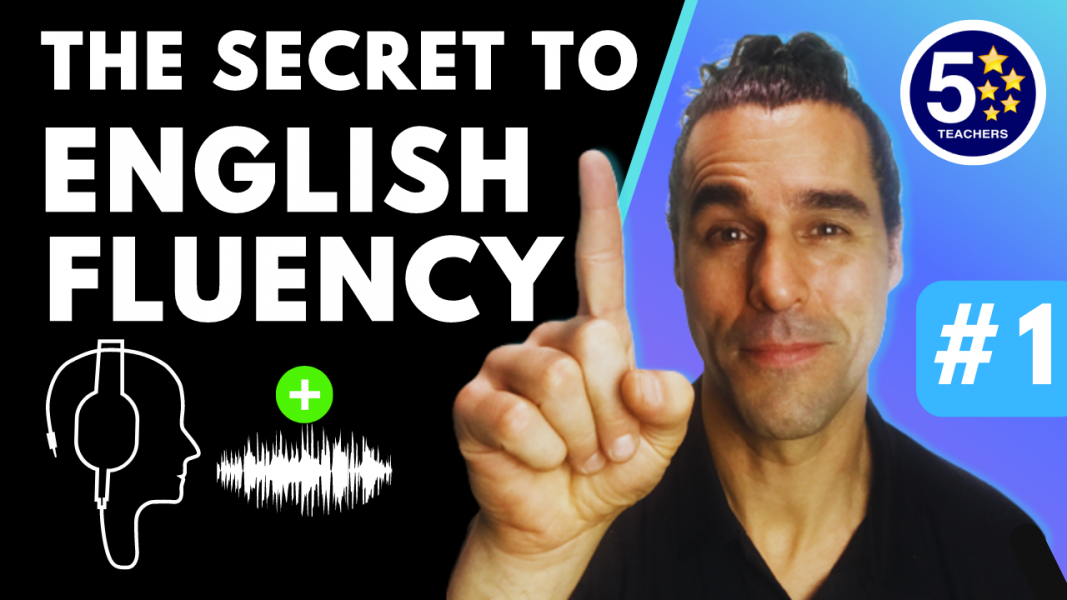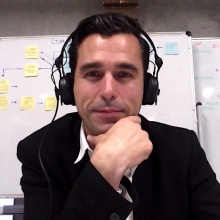I’ve waited a long time to write this post and create that video because I was afraid. Yes, I was afraid, afraid that it would damage my reputation as “The English Teacher” or that people would take a strong opposed stance if they received this information and criticised me.
So then what triggered me to write it and create the video “The Secret To English Fluency” in the end?
Good question.
I believe it was the realisation that my life is finite and that if I wanted to make my dream come true without having any money at all. I would have to do something that very few people advised me to do: give away my secret, free of charge.
I do understand that things which are free are often of little value. Except of course, the things that were all given to us at birth: our minds, our creativity, our imagination, our bodies, the sun, the air, water, nature, love, friendship, all these things are priceless and come free of charge.
So I came to the conclusion that it was the right thing to do.
“And the right time to do the right thing is always … right now.”
You see, my goal in life is to have everyone in the world at least speak fluent English. More languages is great but at least fluent English.
This surely will come as a surprise to most of you and you’ll probably call me crazy. You have every right to do that. But before you do that, may I ask that you read the following 2 statements which I believe in:
The first one is by Steve Jobs who said “Because the people who are crazy enough to think they can change the world, are the ones who do.” I don’t want to change the world to be remembered, I want to change the world “so that it works”. For some reason I feel no need to be praised when I do things however great they were, are or will be. Probably my brain is wired differently.
The second statement I heard in a motivational video and it just resonated with me tremendously, regardless if it’s a true statement or not. It’s Thomas Alva Edison’s dream. His dream wasn’t to invent the light bulb. No. “His dream was to light the planet Earth at night”. Wow! Gigantic and again most people would have called him “crazy”. And he surely didn’t see his dream come true but what I like about it is that he went for it, he believed in his dream, he put all his energy, creativity in his dream in spite of what the naysayers said. The message being here is “Dream big and believe you can make it happen”.
So why 1 language?
Many problems come from poor communication between people because of language barriers or language differences. I believe that if there were only 1 language that all people could speak fluently, that would dramatically reduce the problems in the world. It’s great to speak different languages but let’s all aim to speak 1 language fluently:
English.
Now, you may wonder how I came up with this idea to create short English ListeningExercises™ for my students and the answer is quite simple:
I have always been a fan of 2 things that had to do with English: music and movies.
Music
When my brother and I were small, we used to play with Matchbox™ cars and Playmobil™ indoors during rainy days and then we were always listening to music via a cassette tape that we got from dad. Now you have to understand that my father was a butcher and he too loved music. On his day off, he would go to the city and buy the latest and greatest hits on vinyl record. He’d then come home and started DJing in the attic to spin the songs together and record them on tape. Because when he was working in his butcher workshop, he couldn’t turn over his vinyl records with his dirty and bloody hands so he taped these songs together on a cassette tape and bought an “auto-reverse cassette deck”. Now he could listen endlessly to the music he had bought. And once he was bored of them, he gave them to us and that way he influenced us with his music. Fantastic!
Movies
I love a good movie and I’m a fan of broad range of genres but the one genre that lay at the foundation of “The Secret To English Fluency” was “comedy”. I used to watch certain comedy movies over and over again.
And there were always certain short and funny lines that I loved to see again and again and again. And when I watched these parts again and again, I tried to speak at the same time, at the same tempo, with the same intonation and with the same accent as they did. And after a while, I had mastered that one line. That’s why they call them one-liners.
And with these one-liners up my sleeve, I went out partying in Hong Kong. I always had them with me. I always was able to pull them out exactly like they sounded in those movies. It made many people laugh so I kept doing it. It was fun to do.
And that’s when I realised: “Hey, this is interesting.” I can say these lines exactly as they were supposed to be pronounced and with the correct intonation.
I was basically “acting”. And it was so easy to do because I was only acting 1 or 2 lines.
And there it was: “The Secret to English Fluency.”
Without me knowing it, I was following my own programme to become a natively-speaking English speaker. And then later I applied the same method in my own English learning centre in Hong Kong. Our students all received a short ListeningExercises™ about something that THEY were interested in, usually the rules of a board game. So each lesson, they had to listen via the website online at home every day (ask them) and when they came to school, they had to come to the board and repeat what they could remember from that ListeningExercise™ in front of the classroom. Not to judge or assess them but to give them an opportunity to “present something” in front of an audience. I’ve always been keen on helping people deliver their presentations. I have to say that the method took some time before it had become free of all the early childhood diseases. For example, in the beginning the content of those LEs™ were complete rubbish. But then I hired Greg from the United States, Janet, James and Eleanor from the UK to write or record short monologues for The English Teacher. We started to create quality content that was what students in the UK and the US used as well in their conversations on the playground besides the rules of the board games. Our writers were free to write what they wanted but it had to be how primary school kids speak in the UK or the US. That was the condition.
Questions you might have about me:
Q: Did we speak English when we were kids?
A: No.
Q: Did we watch television in English?
A: Yes. About 50% of the time the programmes or the movies were in English. But they were always subtitled in Dutch.
Q: When did I start learning English?
A: I believe that I was 14 years old and therefore in Secondary 2.
Q: Was I good at English in school?
A: I wasn’t bad but I surely was NOT great either. Here are my end results in school: Form 1: Form 2: Form 3: Form 4: Form 5: Form 6:
Q: Did I like English at school?
A: Yes, I liked it quite a bit but I liked mathematics more because I had a GREAT math teacher.
Q: Do I believe if it’s easier to learn English if your mother tongue is Dutch instead of Chinese?
A: My first answer would be: yes because English is a mix of Roman and Germanic languages and Chinese has no relation with English. But before you say “Gee, it’s so hard.” it really depends on how much you are exposed to the language that you want to learn and how much of what is said is repeated. Therefore listening to the news every day is not going to help you much. It will rather help you become disappointed. I must say that when I was listening to my dad’s tapes, I was just mumbling something because I never knew what they were talking about. Only later when I read the lyrics (the song text), I learnt what their lyrics meant and therefore I was even more attracted to sing along with the songs. So the takeaway from this answer is: you must have the script of the songs AND conversely you must have the script of your English ListeningExercise™
Q: In the video I said “I felt super guilty.” Did I lie about me not being a native English teacher/speaker?
A: Yes, I did when people asked me. I was afraid I would lose their business. I know I shouldn’t have lied. Not only to be truthful to people, of course, but equally importantly to emphasise the fact that I had been through all the same struggles that these students are now also going through. That is THE best sales pitch one can give. But boy, did my unworthy self-image push that one away and make me lie, afraid that no one would love me anymore if I were no native English teacher.
Being a natively-speaking English teacher sets me apart from other native English teachers because they might take certain things for granted where I wouldn’t. For them it’s “normal” for me, it was a problem at first, so I remember those problems.
Q: So what were some of my commonly-made mistakes in English?
A: It used to be the conjugation of a verb with the helping verb “do”. For example: I didn’t said that. [X] The correct answer is of course: I didn’t say that. And I hear it often with both Dutch, French and Chinese speakers. And if I’m teaching these people who make this mistake, I have a great way to teach them so that they ALWAYS remember how to say it correctly.
Q: Am I still struggling with certain English pronunciation?
A: Some phrases I still find difficult to pronounce like the connection between these 2 words “English speaker”, or “maths teacher”. Try to say that fast without tripping over your tongue. Some people criticise me for not pronouncing “The” correctly. Mine sounds too often like a “Duh” they say and I agree. They are right. But what’s the point here? To speak correct English or to have clear communication? Should I be the best “English speaker” (speaking of the devil, there we have it again) in the world or should I show people that you must speak slowly and clearly to have great communication?Which is it?
Q: Do I feel as if I know the English language perfectly?
A: Absolutely not. I believe no one in the entire world could say that. Perhaps an AI. I have a lot to learn but I can tell you one thing: if I don’t know, I’ll honestly tell you that I don’t know and then I’ll look it up, find the essence of it and give it to you in such a way that you will get it. That’s what I’m committed to.
Q: This Secret of English Fluency is great but do I have more tips and tricks that ESL students could help equally as much (free of charge)?
A: Equally as much, no. But I do have several tips that I shared in 2015 on my YouTube channel “EngTeacherHK”. You’ll find them under “Tips To Learn English Faster”. The first tip is actually the precursor of “The Secret To English Fluency”.
“Perfect English is NOT the same as GREAT communication.”
I am pretty sure that there are very, and I mean VERY, few people on earth who master the English language “perfectly”.
But is that REALLY your goal?
Or is your goal to understand and be understood i.e. great communication?
Peace!
Ik heb lang gewacht om dit bericht te schrijven en die video te maken omdat ik bang was. Ja, ik was bang, bang dat het mijn reputatie als "The English Teacher" zou schaden of dat mensen een sterk afwijzende houding zouden aannemen als ze deze informatie zouden ontvangen en mij zouden bekritiseren.
Dus wat triggerde me dan om het uiteindelijk toch te schrijven en de video "The Secret To English Fluency" te maken?
Goeie vraag.
Ik denk dat het het besef was dat mijn leven eindig is en dat als ik mijn droom wilde verwezenlijken zonder ook maar één cent te hebben. Ik zou iets moeten doen wat maar weinig mensen me aanraadden: mijn geheim gratis weggeven.
Ik begrijp dat dingen die gratis zijn vaak weinig waarde hebben. Behalve natuurlijk de dingen die ons allemaal bij onze geboorte zijn gegeven: onze geest, onze creativiteit, onze verbeelding, ons lichaam, de zon, de lucht, het water, de natuur, de liefde, de vriendschap, al deze dingen zijn onbetaalbaar en gratis.
Dus kwam ik tot de conclusie dat dit het juiste was om te doen.
"En het juiste moment om het juiste ding te doen is altijd... nu."
Mijn levensdoel is dat iedereen in de wereld vloeiend Engels spreekt. Meer talen is geweldig, maar ten minste vloeiend Engels.
Dit zal voor de meesten van jullie als een verrassing komen en jullie zullen me waarschijnlijk gek noemen. Daar heb je alle recht toe. Maar voor je dat doet, mag ik je vragen de volgende 2 uitspraken te lezen waarin ik geloof:
De eerste is van Steve Jobs die zei: "Omdat de mensen die gek genoeg zijn om te denken dat ze de wereld kunnen veranderen, degenen zijn die het doen." Ik wil de wereld niet veranderen om herinnerd te worden, ik wil de wereld veranderen "zodat het werkt". Om een of andere reden voel ik geen behoefte om geprezen te worden als ik dingen doe, hoe geweldig ze ook waren, zijn of zullen zijn. Waarschijnlijk zijn mijn hersenen anders bedraad.
De tweede uitspraak hoorde ik in een motiverende video en hij resoneerde enorm met mij, ongeacht of hij waar is of niet. Het is de droom van Thomas Alva Edison. Zijn droom was niet om de gloeilamp uit te vinden. Nee. "Zijn droom was om de planeet Aarde 's nachts te verlichten". Wow! Gigantisch en opnieuw zouden de meeste mensen hem "gek" hebben genoemd. En hij zag zijn droom zeker niet uitkomen, maar wat ik mooi vind is dat hij ervoor ging, hij geloofde in zijn droom, hij stak al zijn energie en creativiteit in zijn droom, ondanks wat de neezeggers zeiden. De boodschap hier is "Droom groot en geloof dat je het kunt waarmaken".
Waarom dan 1 taal?
Veel problemen komen voort uit slechte communicatie tussen mensen vanwege taalbarrières of taalverschillen. Ik geloof dat als er maar 1 taal zou zijn die alle mensen vloeiend zouden kunnen spreken, dat dit de problemen in de wereld drastisch zou verminderen. Het is geweldig om verschillende talen te spreken, maar laten we allemaal streven naar het vloeiend spreken van 1 taal:
Engels.
Nu vraag je je misschien af hoe ik op dit idee ben gekomen om korte Engelse Luisteroefeningen™ te maken voor mijn leerlingen en het antwoord is heel eenvoudig:
Ik ben altijd een fan geweest van 2 dingen die met Engels te maken hebben: muziek en films.
Muziek
Toen mijn broer en ik klein waren, speelden we tijdens regendagen binnen met Matchbox™ auto's en Playmobil™ en dan luisterden we altijd naar muziek via een cassettebandje dat we van papa kregen. Nu moet je begrijpen dat mijn vader slager was en ook hij hield van muziek. Op zijn vrije dag ging hij naar de stad en kocht de nieuwste en grootste hits op vinylplaten. Hij kwam dan thuis en ging op zolder DJ-en om de nummers aan elkaar te draaien en op te nemen op band. Want als hij in zijn slagerij werkte, kon hij zijn vinylplaten niet omdraaien met zijn vuile en bebloede handen, dus tapete hij deze nummers samen op een cassettebandje en kocht een "auto-reverse cassettedeck". Nu kon hij eindeloos luisteren naar de muziek die hij had gekocht. En als hij ze beu was, gaf hij ze aan ons en zo beïnvloedde hij ons met zijn muziek. Fantastisch!
Films
Ik hou van een goeie film en ik ben een fan van een breed spectrum van genres, maar het enige genre dat aan de basis lag van "The Secret To English Fluency" was "komedie". Ik keek altijd weer naar bepaalde komediefilms.
En er waren altijd bepaalde korte en grappige lijnen die ik graag steeds opnieuw zag. En als ik die stukjes steeds weer zag, probeerde ik op hetzelfde moment, in hetzelfde tempo, met dezelfde intonatie en met hetzelfde accent te spreken als zij deden. En na een tijdje had ik die ene regel onder de knie. Daarom noemen ze het one-liners.
En met deze oneliners in mijn mouw, ging ik feesten in Hong Kong. Ik had ze altijd bij me. Ik kon ze altijd precies zo uitspreken als in die films. Het maakte veel mensen aan het lachen, dus bleef ik het doen. Het was leuk om te doen.
En toen realiseerde ik me: "Hé, dit is interessant." Ik kan deze regels precies zo uitspreken als het hoort en met de juiste intonatie.
Ik was eigenlijk aan het "acteren". En het was zo makkelijk omdat ik maar 1 of 2 regels acteerde.
En daar was het: "Het geheim van vloeiend Engels."
Zonder dat ik het wist, volgde ik mijn eigen programma om een moedertaalspreker van het Engels te worden. En later paste ik dezelfde methode toe in mijn eigen Engels leercentrum in Hong Kong. Onze leerlingen kregen allemaal een korte ListeningExercise™ over iets waarin ZIJ geïnteresseerd waren, meestal de regels van een bordspel. Na elke les moesten ze dus elke dag thuis via de website online luisteren (vraag het hen maar als je ze kent) en als ze op school kwamen, moesten ze voor de klas aan het bord komen en herhalen wat ze zich van die ListeningExercise™ konden herinneren. Niet om ze te beoordelen, maar om ze een kans te geven iets te "presenteren" voor een publiek. Ik heb het altijd leuk gevonden om mensen te helpen bij het geven van hun presentaties. Ik moet zeggen dat het enige tijd duurde voordat de methode vrij was van alle kinderziekten. Zo was de inhoud van die LEs™ in het begin complete onzin. Maar toen huurde ik Greg uit de Verenigde Staten, Janet, James en Eleanor uit het Verenigd Koninkrijk in om korte monologen te schrijven of op te nemen voor The English Teacher. We begonnen kwaliteitsinhoud te creëren die leerlingen in het VK en de VS ook gebruikten in hun gesprekken op de speelplaats, naast de regels van de bordspellen. Onze schrijvers waren vrij om te schrijven wat ze wilden, maar het moest zijn hoe kinderen op de basisschool spreken in het VK of de VS. Dat was de voorwaarde.
Vragen die je over mij zou kunnen hebben:
V: Spraken we Engels toen we kinderen waren?
A: Nee.
V: Keken we televisie in het Engels?
A: Ja. Ongeveer 50% van de tijd waren de programma's of de films in het Engels. Maar ze waren altijd ondertiteld in het Nederlands.
V: Wanneer begon ik Engels te leren?
A: Ik geloof dat ik 14 jaar oud was en dus in de tweede klas zat.
V: Was ik goed in Engels op school?
A: Ik was niet slecht, maar zeker ook niet geweldig. Hier zijn mijn eindresultaten op school: Formulier 1: Formulier 2: Formulier 3: Formulier 4: Formulier 5: Formulier 6:
V: Vond ik Engels leuk op school?
A: Ja, ik vond het best leuk, maar ik vond wiskunde leuker omdat ik een super wiskundeleraar had.
V: Geloof ik dat het gemakkelijker is Engels te leren als je moedertaal Nederlands is in plaats van Chinees?
A: Mijn eerste antwoord zou zijn: ja, want Engels is een mix van Romaanse en Germaanse talen en Chinees heeft geen relatie met Engels. Maar voordat je zegt "Goh, het is zo moeilijk." hangt het er echt van af hoeveel je wordt blootgesteld aan de taal die je wilt leren en hoeveel van wat er wordt gezegd wordt herhaald. Daarom zal elke dag naar het nieuws luisteren je niet veel helpen. Het zal je eerder teleurstellen. Ik moet zeggen dat toen ik naar de bandjes van mijn vader luisterde, ik alleen maar wat mompelde omdat ik nooit wist waar ze het over hadden. Pas later toen ik de teksten (de songtekst) las, leerde ik wat hun teksten betekenden en daardoor voelde ik me nog meer aangetrokken om met de liedjes mee te zingen. De afleiding van dit antwoord is dus: je moet het script van de liedjes hebben EN omgekeerd moet je het script van je Engelse ListeningExercise™ hebben™.
V: In de video zei ik "Ik voelde me super schuldig." Heb ik gelogen over het feit dat ik geen native leraar/spreker Engels ben?
A: Ja, dat deed ik toen mensen me dat vroegen. Ik was bang dat ik hun zaak zou verliezen. Ik weet dat ik niet had moeten liegen. Niet alleen om eerlijk te zijn tegen de mensen, natuurlijk, maar even belangrijk om te benadrukken dat ik dezelfde moeilijkheden had doorgemaakt die deze studenten nu ook doormaken. Dat is het beste verkooppraatje dat je kunt geven. Maar boy, heeft mijn onwaardige zelfbeeld dat weggedrukt en me doen liegen, bang dat niemand meer van me zou houden als ik geen native English teacher was.
Dat ik een inheemse leraar Engels ben, onderscheidt mij van andere inheemse leraren Engels, omdat zij bepaalde dingen voor lief nemen waar ik dat niet doe. Voor hen is het "normaal" voor mij was het in het begin een probleem, dus ik herinner me die problemen.
V: Wat waren enkele van mijn vaak gemaakte fouten in het Engels?
A: Vroeger was het de vervoeging van een werkwoord met het hulpwerkwoord "do". Bijvoorbeeld: I didn't said that. [X] Het juiste antwoord is natuurlijk: “I didn’t say that". En ik hoor het vaak bij zowel Nederlands-, Frans- als Chineessprekenden. En als ik deze mensen die deze fout maken les geef, heb ik een geweldige manier om ze te leren zodat ze ALTIJD onthouden hoe ze het correct moeten zeggen.
V: Heb ik nog steeds moeite met bepaalde Engelse uitspraak?
A: Sommige zinnen vind ik nog steeds moeilijk uit te spreken zoals de verbinding tussen deze 2 woorden "English speaker", of "maths teacher". Probeer dat maar eens snel te zeggen zonder over je tong te struikelen. Sommige mensen verwijten mij dat ik "De" niet correct uitspreek. De mijne klinkt te vaak als een "Duh" zeggen ze en daar ben ik het mee eens. Ze hebben gelijk. Maar waar gaat het hier om? Correct Engels spreken of duidelijk communiceren? Moet ik de beste "English speaker" (over de duivel gesproken, daar hebben we het weer) in de wereld zijn of moet ik de mensen laten zien dat je langzaam en duidelijk moet spreken om geweldig te zijn.
V: Heb ik het gevoel dat ik de Engelse taal perfect ken?
A: Absoluut niet. Ik denk dat niemand in de hele wereld dat kan zeggen. Misschien een AI. Ik moet nog veel leren, maar ik kan u één ding zeggen: als ik het niet weet, zeg ik eerlijk dat ik het niet weet en dan zoek ik het op, vind de essentie ervan en geef het je op zo'n manier dat je het begrijpt. Daar sta ik voor in het leven.
V: Dit Secret of English Fluency is geweldig, maar heb ik nog meer tips en trucs waar ESL-studenten evenveel (gratis) aan hebben?
A: Evenveel niet. Maar ik heb wel verschillende tips die ik in 2015 heb gedeeld op mijn YouTube-kanaal "EngTeacherHK". Je vindt ze onder "Tips to learn English faster". De eerste tip is eigenlijk de voorloper van "The Secret To English Fluency".
"Perfect Engels is NIET hetzelfde als GROTE communicatie."
Ik ben er vrij zeker van dat er maar weinig mensen op aarde zijn die de Engelse taal "perfect" beheersen.
Maar is dat ECHT je doel?
Of is je doel te begrijpen en begrepen te worden, d.w.z. goeie communicatie?
Peace!





